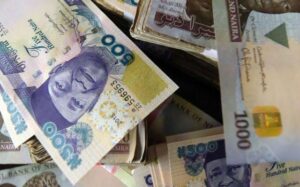Is the Naira the weakest currency in the world?
There has been some chatter recently about how the Naira has been underwhelming in the forex market compared to the dollar.
The situation is mainly down to the fact that the Nigerian economy is affected by the crash in global oil prices. The Nigerian Naira has seen many reversals in fortune for many reasons that the government has not thrashed out.
The country runs a flexible exchange policy but have failed in diversifying their resources. This ensured that the fortune of the Naira is permanently hinged.
Today, we look at how the Naira is performing compared to its counterparts across the globe and whether it’s among the weakest.
How can Naira regain its value?
For the Naira to regain its value, great work would have to be done in its economic policy. This is because the performance of any country’s currency depends mainly on its economy.
First of all, the government is the most crucial factor that can influence the recovery of the Naira in significant proportions. Policies associated with are made on the authorizations of vital government agencies.
In Nigeria, this responsibility lies with the Vice President and his economic team. Therefore, the first step in getting the Naira back on track is the appointment of eligible and competent leaders that will decide effectively on the economy, prioritizing national interest.
Secondly, the country will need to diversify its economy massively. It’s appalling that in 2021, Nigeria is massively dependent on oil as the only trustworthy source of export.
Even the export is not as straightforward as it should be because of fuel subsidy. This subsidy is the amount that the government pays to petroleum marketers to take their crude oil abroad to mine them due to the lack of a proper functional refinery in the country.
The value of the Naira started depreciating when the global oil price reduced. For Naira to start performing again, Nigeria would need to find non-oil value exports to other countries such as agriculture, tourism, and other raw materials.
Finally, the Naira would recover most significantly if the country could support local production of materials.
Over 80% of materials that are used in the country at the moment are imported.
This includes cars, clothing, food, and even the tiny basic things like pencils.
This is demeaning for a highly populated country like Nigeria and the demand for dollars to import these materials further devalues the Naira.
For significant recovery to occur to Naira, importation is vital to create revenue.
What is the weakest currency in the world?
From the statistics gotten from Google finance in 2021 for exchange rates, the weakest currency globally compared to the strongest, most performing currency in the world is the US dollars is the Venezuelan Bolivar.
Venezuelan Sovereign Bolívar (1,552,540 VES/USD)
Venezuela has been fighting inflation for the latter part of the last five years. Their currency, the Bolivar, has been devalued so many times to battle their economic situation.
The country decided to redenominate the currency in 2018 due to the high inflation reaching up to about 830,000% and increasing daily. The exchange rate of the old currency with the dollar was valued at ~248,487 VEF to 1 USD.
When the new denomination currencies were introduced, it became known as VES, and its exchange rate to the old VEF was 100,000 VEF to 1 VES.
This did very little to improve the economy, and price rates were going higher, with several of their denominated currencies becoming worthless.
The country started experiencing hyperinflation when its current president Nicolás Maduro began his presidency.
In the few months leading to that moment, oil was the main export of Venezuela, but the global oil price began to decrease in 2013. The ability of the Bolivar to purchase oil reduced significantly, throwing the economy into crisis.
President Maduro’s decided that the only viable solution was to print more money. This only increased the money supply, despite holding the economy for a while, but as global oil prices continued to drop, the economy only got worse.
The president’s recklessness in printing extra money led to the hyperinflation that is plaguing the country today.
The minimum wage was reduced from $360 to $31. An attempt by President Maduro to increase the minimum wage by 30% in 2014 could only work temporarily because of the continued devaluation of the company.
A desperate attempt by the Madura administration to halt the further decrease in the exchange rate of the Bolivar to the dollar began when the currency Petro was created.
This currency was meant to fight the US dollar and add more value to the Bolivar. The government started currency controls and stopped their citizens from exchanging the Bolivar for the dollar without authorization.
This drove more people to turn to the black markets while some bold ones crossed over to the neighboring country Columbia to withdraw dollars and exchange them at their rates in Venezuela.
It created a parallel pricing pattern between the government and the black market, driving the bolivar value even further down when compared to the dollar.
The unofficial forex sellers earned loads of profits while the government tried to control the exchange rate, causing a massive hike in food and commodity prices. The summary of the Venezuelan economic crises highlighted bad decisions and economic policies of the government.
Today in the world’s economy, the Nigerian Naira is plying the same route as the Bolivar if severe economic policies are not taken.
In Conclusion
Some people will ask whether the Naira can be able to recover from the recent slump truly. The answer will depend on the crop of leaders that we have in positions of power.
Their sound decision-making in making sound economy-driven decisions will make a massive difference in improving the Naira’s value.